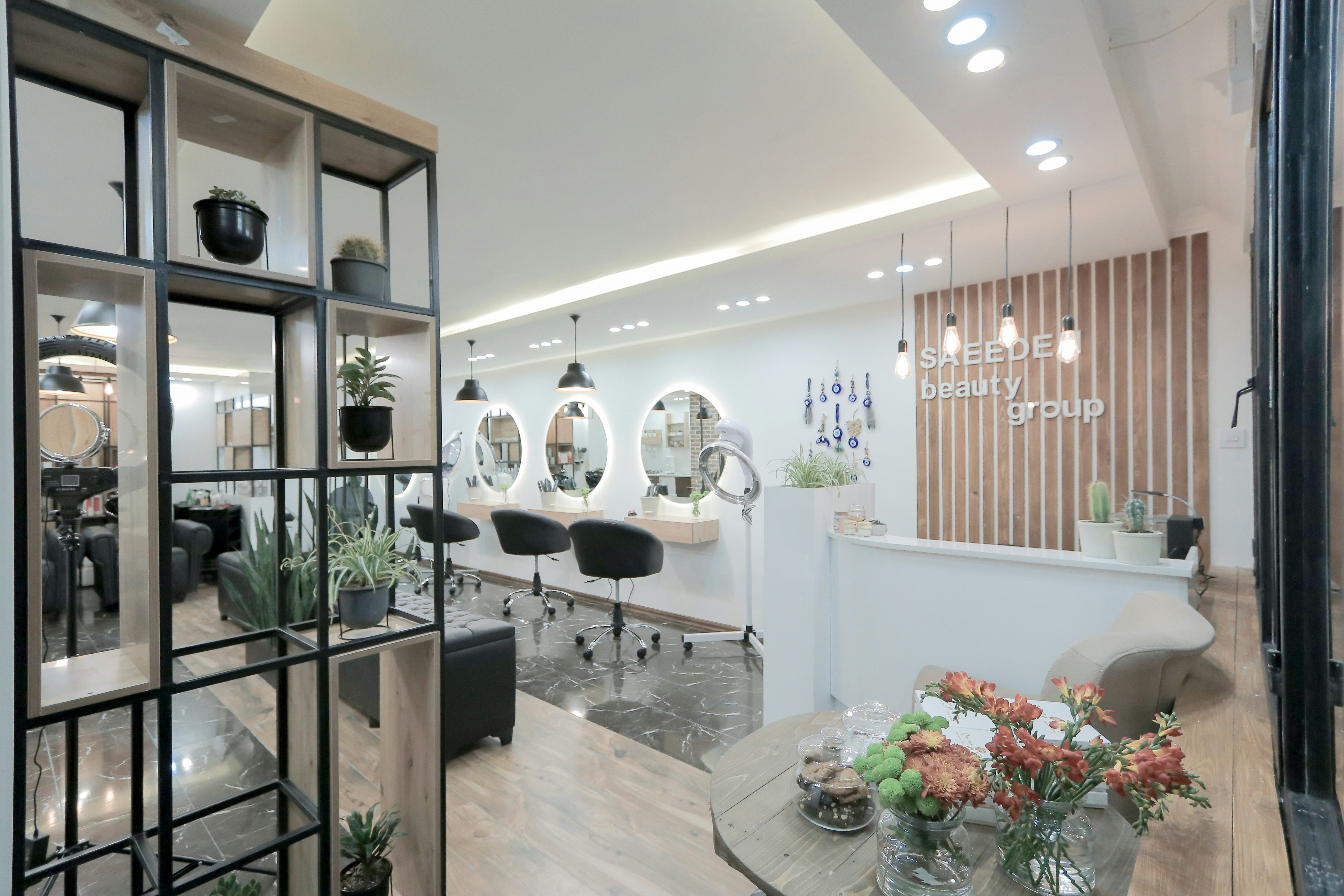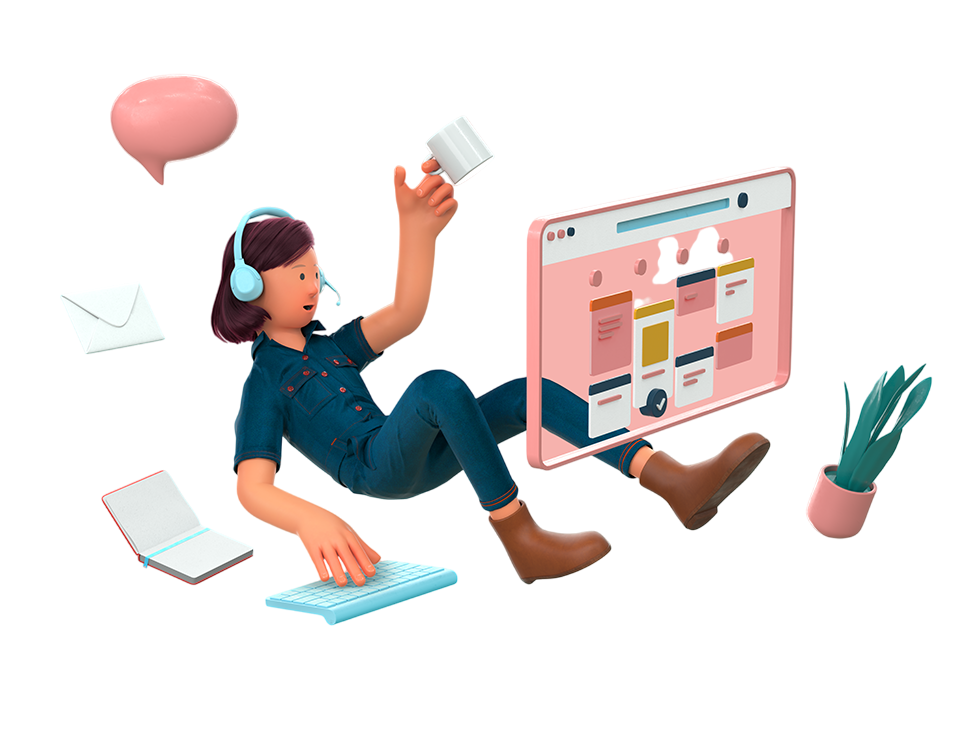Table of Contents
ToggleIntroduction to Beauty and Wellness Industry in Qatar
The beauty and wellness industry in Qatar has experienced remarkable growth in recent years, a trend that reflects both domestic and regional shifts in consumer behavior and lifestyle choices. As the population in Qatar continues to expand, there is an increasing demand for salon, spa, and beauty parlor services. This burgeoning sector is not merely a reflection of personal grooming needs but also an indication of a broader cultural embrace of wellness and self-care practices.
According to recent statistics, the beauty and wellness market in Qatar is projected to reach several billion Qatari Riyals by 2025. Factors contributing to this growth include a rising middle class with disposable income, increased awareness of personal grooming, and a global trend towards wellness-oriented lifestyles. Furthermore, the influence of social media and beauty influencers has heightened visibility for beauty brands and services, leading to greater engagement from the public. As a result, businesses offering these services must ensure they are well-equipped to meet consumer expectations.
In this technology-driven age, the importance of having an online booking platform for salons, spas, and beauty parlors cannot be overstated. Consumers increasingly prefer the convenience of scheduling appointments online rather than over the phone or in person. This shift has prompted many businesses to adapt to digital solutions that facilitate seamless booking experiences. The advent of user-friendly booking systems not only improves operational efficiency but also enhances customer satisfaction by eliminating the friction associated with traditional booking methods.
As the beauty and wellness industry in Qatar continues to evolve, it is essential for businesses to stay attuned to emerging trends, consumer preferences, and technological advancements. Embracing innovative solutions will not only position a salon or spa for success but will also contribute to the ongoing growth of this vibrant sector.
Key Features of a Booking Website and Mobile App
In the competitive landscape of beauty service bookings, having a robust booking website and mobile application is crucial. A well-designed platform not only improves user experience but also enhances operational efficiency. One of the essential features is easy navigation. A user-friendly interface allows clients to quickly find the services they are looking for, minimizing frustration and ensuring a more enjoyable booking process. This can be achieved through clear categorization of services and intuitive design elements.
Another fundamental component is appointment scheduling. Users should be able to view available time slots, select a service, and book their appointments seamlessly. A calendar integration feature can help streamline this process, allowing users to receive reminders via email or SMS. Furthermore, providing an option for clients to modify or cancel appointments with ease is crucial in maintaining customer satisfaction.
User registration plays a vital role in personalizing the experience. Users should have the option to create an account that will securely save their information, preferences, and booking history. This not only makes future bookings more straightforward but also engenders customer loyalty. Additionally, allowing social media logins can expedite the registration process.
Payment integration is a crucial feature that can significantly influence user satisfaction. Ensuring a variety of payment options – ranging from credit cards to mobile wallets – caters to user preferences and enhances convenience. Security must also be prioritized, with SSL encryption to protect sensitive information during transactions.
Customer reviews and ratings are essential features that can enhance credibility and encourage trust. Implementing a review system allows users to share their experiences, which can guide potential clients in making informed decisions. Lastly, responsive design is vital to ensure that the platform is accessible across all devices, further boosting user engagement and accessibility.
Choosing the Right Development Partner
Selecting the appropriate development partner is a pivotal step in creating a successful beauty service booking platform in Qatar. A well-chosen company can significantly enhance the usability and functionality of your platform, ensuring a seamless experience for both service providers and customers. The first aspect to consider is their expertise in mobile and web development. As the booking platform will likely involve both a mobile application and a website, it is essential that the development partner possesses a robust portfolio showcasing their capabilities in these areas. This not only includes technical skills but also an understanding of user interface (UI) and user experience (UX) design.
Next, gauging the partner’s experience specifically within the beauty sector can provide invaluable insights. A development company with a solid background in beauty service platforms will understand the unique challenges and requirements inherent in the industry. This experience often translates into more relevant features, as well as an ability to foresee potential issues before they arise.
Furthermore, evaluating the customer support and post-launch services of a potential partner is crucial. Launching a platform is just the beginning; ongoing support and maintenance ensure that the platform remains operational and updated. Inquire about their response times and availability to address any issues that may arise post-launch. Key questions to ask include: What is their approach to project management? How do they ensure communication throughout the development process? And what kind of training or support will they provide once the platform is live?
By carefully considering these factors and conducting comprehensive research, you can select a development partner that aligns with your vision and can contribute to the success of your beauty service booking platform.
Technological Advancements in Beauty Service Apps
In recent years, the beauty industry has seen a rapid shift towards technology-driven solutions, especially in the realm of service booking apps. The integration of artificial intelligence (AI) has ushered in groundbreaking features that significantly enhance user experience. By utilizing AI algorithms, beauty service apps can provide personalized recommendations based on user preferences, past choices, and even trending styles. Such customization not only improves user satisfaction but also fosters brand loyalty, as clients feel understood and valued.
Additionally, real-time notifications have become an essential aspect of beauty service applications. These notifications keep users informed about appointment confirmations, reminders, and any changes in service availability. By offering timely updates, beauty service apps can minimize customer frustration and create a smoother service experience. This proactive communication ensures clients feel in control of their beauty journey, further enhancing their overall satisfaction.
Geo-location services represent another significant technological advancement in the beauty booking landscape. These features allow users to discover nearby salons and spas based on their current location, enabling them to quickly find and book services. By presenting users with options that are conveniently situated, geo-location services not only save time but also encourage spontaneous bookings, which can lead to increased customer traffic for local businesses.
Moreover, the use of augmented reality (AR) has transformed the way customers interact with beauty services. Virtual try-on features allow users to experiment with different hair colors, makeup looks, and styles without committing to actual changes. This immersive experience can significantly enhance customer engagement and is particularly appealing to tech-savvy millennials and Gen Z consumers who value innovative solutions. By incorporating these technological advancements, beauty service apps can elevate their offerings, creating a more enjoyable and streamlined experience for users while driving growth in the competitive beauty market.
Marketing Strategies for Beauty Booking Platforms
To effectively promote beauty booking platforms, various marketing strategies must be implemented to enhance brand visibility and attract both customers and service providers. One of the primary approaches is leveraging search engine optimization (SEO) techniques. By optimizing the platform’s website for relevant keywords such as “salon booking” or “spa appointments in Qatar,” businesses can improve their search engine rankings, driving organic traffic to their platforms. This involves on-page optimization, including using meta tags, designing mobile-friendly interfaces, and creating high-quality content that addresses the needs of potential users.
In addition to SEO, social media marketing plays a crucial role in promoting beauty booking services. Platforms like Instagram and Facebook are vital for engaging a visual audience and showcasing beauty services. Consistent posting of attractive images, customer testimonials, and promotional offers can help create a loyal customer base. Paid advertising on these platforms can also be targeted to reach specific demographics, thus increasing conversions. Utilizing stories and reels to highlight real-time service bookings can add an interactive layer to customer engagement, driving further interest.
Collaborating with influencers in the beauty industry can significantly amplify the platform’s reach. Influencer partnerships allow brands to tap into established audiences, leveraging their authenticity and rapport with followers. By offering free services for reviews or creating exclusive discount codes, beauty booking platforms can enhance visibility through trusted endorsements, thereby attracting new users and potential service providers.
Lastly, email marketing remains an effective tactic for maintaining engagement with both new and existing customers. Implementing segmented email lists allows for tailored messages that cater to specific customer preferences and behaviors, promoting special deals or reminding users of previous bookings. These strategies, when combined, can create a robust marketing approach that successfully drives traffic to beauty booking platforms in Qatar, thereby enhancing overall business growth.
Understanding User Experience (UX) in Beauty App Development
In the realm of beauty app development, understanding user experience (UX) is paramount for creating a successful platform that meets the needs of users and professionals alike. UX design encompasses all aspects of a user’s interaction with an application, focusing on enhancing satisfaction by improving usability, accessibility, and pleasure derived from the interaction. Key principles of UX design include usability, desirability, and credibility, which collectively contribute to developing engaging beauty booking applications.
A critical step in UX design is user journey mapping, which involves identifying each stage a user goes through when interacting with the beauty app, from discovery to booking services. By examining this journey, developers can pinpoint pain points and opportunities for optimization. For instance, if users find the booking process lengthy or confusing, this insight can lead to the redesign of that portion of the app to create a smoother experience. Optimizing elements like navigation, load times, and aesthetic appeal promotes user retention and satisfaction. Moreover, considerations for diverse user needs, such as multilingual support or accessibility features, also play a vital role in broadening the app’s appeal.
Gathering and analyzing user feedback is equally important in promoting a user-centered approach to app development. Implementing features for feedback collection, such as in-app surveys or rating systems, allows developers to understand user sentiments and preferences directly. This data can guide ongoing improvements, ensuring the app evolves alongside user expectations. Successful beauty apps like Glamsquad and Treatwell exemplify the importance of UX design, having incorporated user feedback into their updates, resulting in higher engagement and meaningful user interactions. Through a strategic focus on UX, beauty app developers can significantly enhance the overall effectiveness of their platforms.
Monetization Strategies for Beauty Booking Platforms
In the competitive landscape of beauty services, implementing effective monetization strategies for booking platforms is crucial for sustained growth and profitability. Several models can be adopted, each with distinct advantages and drawbacks, allowing platforms to cater to diverse business goals.
One common approach is the subscription service model, where beauty professionals or establishments pay a recurring fee for access to the platform. This model can provide a steady revenue stream while offering beauty providers greater exposure and potential client engagement. However, it may deter smaller businesses that are reluctant to commit to ongoing costs without guaranteed returns.
Another popular strategy involves charging a commission on bookings made through the platform. This performance-based model incentivizes the platform to drive traffic and conversions, aligning its interests with those of beauty professionals. The challenge, however, lies in determining a commission rate that is competitive yet still profitable. Too high a percentage may discourage providers, while too low could undermine profitability.
Premium listings represent a third monetization strategy wherein beauty professionals can pay for enhanced visibility on the platform. This can take the form of featured spots or prioritized search results, appealing to beauty service providers aiming to stand out in a saturated market. On the downside, this approach may create disparities among businesses and could lead to dissatisfaction among those unable to afford premium options.
Finally, in-app advertisements offer yet another revenue-generating avenue. Third-party brands can leverage the platform’s user base to promote their products and services. This strategy can provide passive income, but it must be balanced carefully to avoid audience alienation due to excessive advertising.
Choosing the right monetization strategy requires a deep understanding of the target market and business objectives. By thoughtfully integrating these models, beauty booking platforms can optimize revenue while maintaining user satisfaction.
Case Studies: Successful Beauty Booking Applications
In the rapidly evolving beauty service industry, several booking applications have emerged triumphant, establishing themselves as benchmarks of success. These applications have transformed the way clients engage with salons, spas, and beauty parlors, effectively streamlining the booking process and enhancing customer satisfaction. A closer examination of these successful beauty booking platforms reveals the crucial elements that contributed to their achievements.
One notable example is the application “GlamourBook,” which has gained significant traction in various markets, including Qatar. GlamourBook stands out due to its user-friendly interface, enabling clients to easily navigate through a variety of available services, compare prices, and book appointments seamlessly. An essential feature of this platform is its integration of customer reviews and ratings, allowing potential clients to make informed choices based on other users’ experiences. This aspect not only builds trust but also fosters a sense of community among users.
Additionally, the application “SpaSync” utilizes targeted marketing strategies, such as personalized promotions and loyalty programs, that have proven instrumental in retaining customers. By analyzing user behavior, SpaSync customizes offers that resonate with individual preferences, resulting in increased engagement and repeat bookings. Their effective use of social media marketing has also played a pivotal role in expanding their audience reach and maintaining a strong online presence.
From these case studies, several key lessons can be drawn for new entrants in the beauty service booking market. Prioritizing a user-friendly interface, incorporating customer feedback mechanisms, and leveraging data for personalized marketing strategies can significantly enhance user experience and engagement. As the beauty service industry continues to evolve, understanding these successful platforms provides invaluable insights that may contribute to the development of a competitive booking application.
Future Trends in Beauty Booking Technology
The landscape of beauty bookings is poised for significant transformation in the coming years, driven primarily by advancements in technology. One prominent trend is the increasing use of chatbots for customer service. These AI-driven tools facilitate 24/7 assistance for clients, providing instant responses to inquiries regarding services, availability, and pricing. By employing natural language processing, chatbots can effectively simulate human interactions, thus enhancing the customer experience while ensuring that beauty service providers remain accessible at all times.
Additionally, the integration of virtual consultations is gaining traction, allowing professionals to assess clients’ needs without necessitating their physical presence. This approach not only has the potential to broaden the client base but also significantly enhances convenience. Clients can engage in video calls to discuss their beauty requirements with professionals, who can then recommend suitable services tailored to individual needs. This trend is particularly beneficial for those unable to visit a salon or spa due to geographical constraints or time limitations.
Mobile app functionalities continue to evolve as well, becoming more sophisticated and user-friendly. Future applications are expected to incorporate features such as augmented reality, enabling clients to virtually try out hairstyles or makeup before making appointments. Furthermore, seamless payment integrations and personalized recommendations based on past bookings will enhance the functionality of these tools. The demand for varied service offerings, easy access, and personalized experiences will drive innovation across platforms.
As beauty service businesses prepare for these advancements, adopting a proactive approach to technology integration is essential. By staying abreast of these trends, establishments can create strategies that not only meet client expectations but also position themselves as leaders in a fast-evolving industry landscape.







